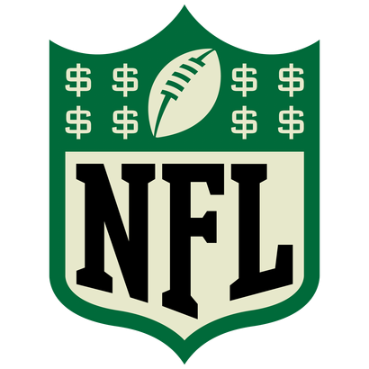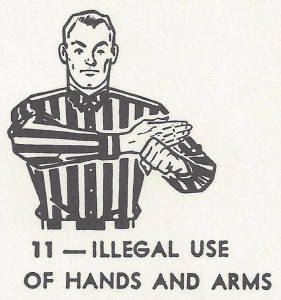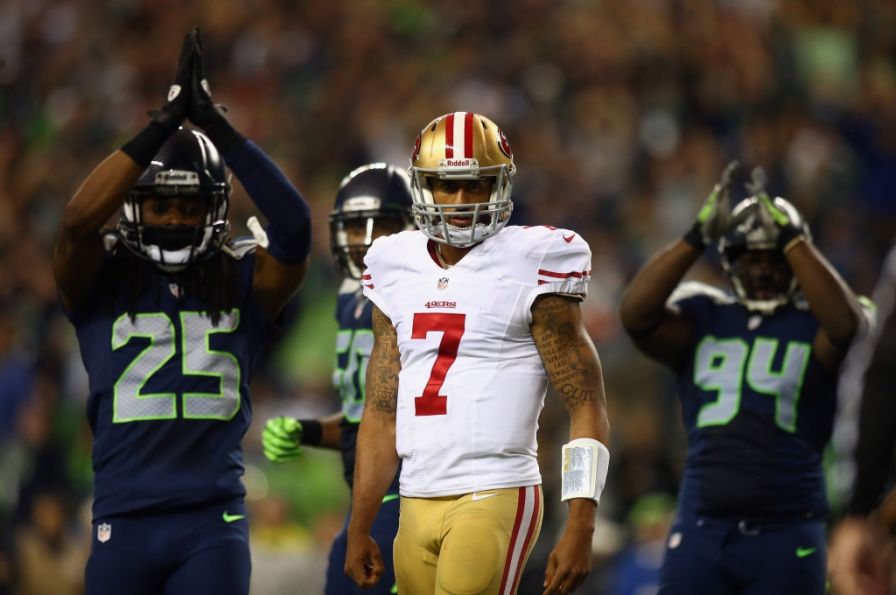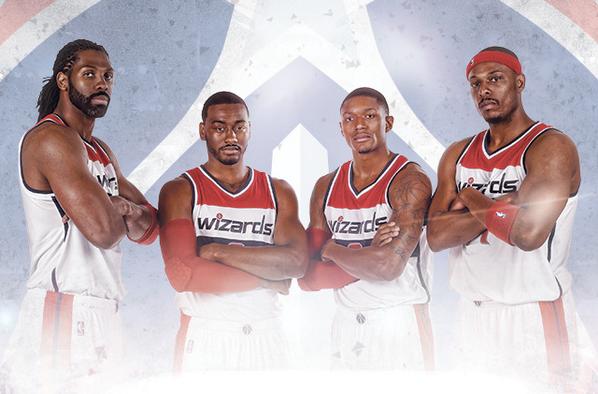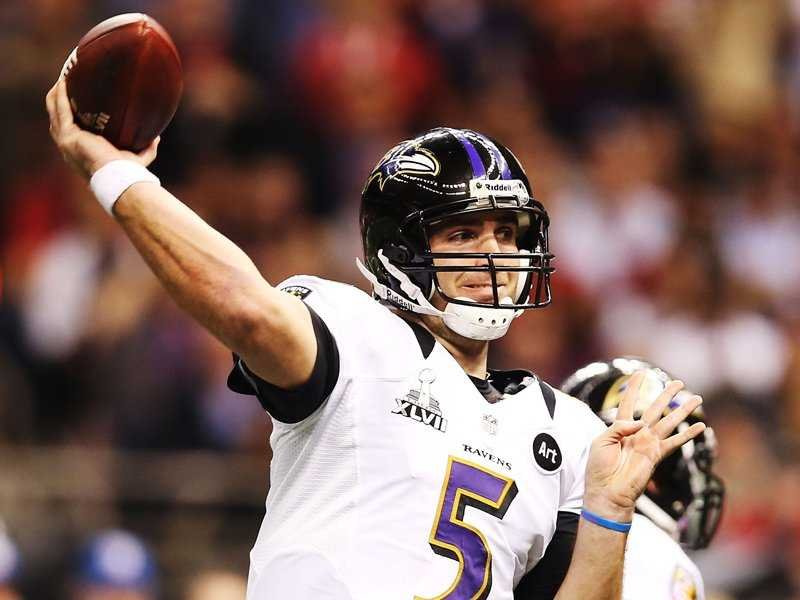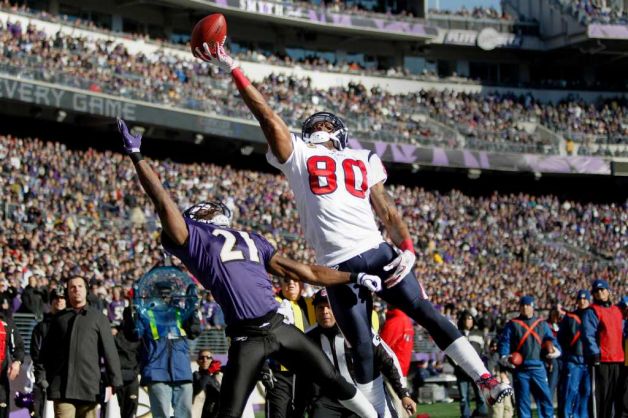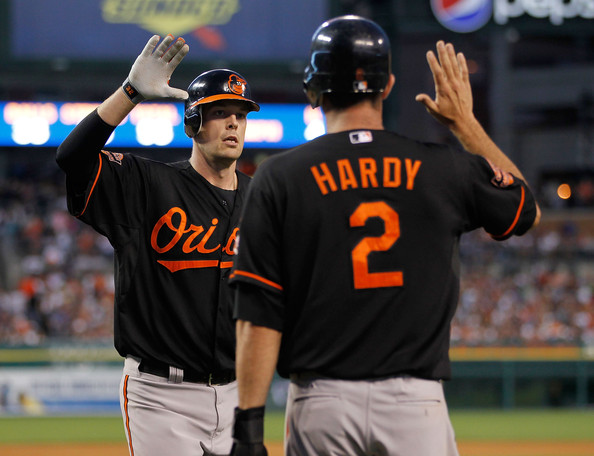It has been established throughout the last several years that the National Football League has changed its regulated style of play, along with its culture, in a serious effort to make the game safer (a $765 million check can attest to that effort).
What has not been established nearly as blatantly among surrounding circles of the $8 billion industry is a far separate effort–one to strongly appease fantasy football players and television networks: Increasing the offenses’ chances of productivity so heavily that the game becomes lopsided and literally unfair.
Those two motives and culture changes are separate. They are not one movement in the same conscientious effort. One change makes the game of football safer. The other makes the game of football watered down, and a worse overall product.
Remember that ‘product’ word.
Firstly, one can understand why the league office and its marketing team would want to increase scoring and “big plays” via tighter penalty regulations and rules:
To the overwhelming majority of fans under the age of 25 or so, the NFL is simply more entertaining to the naked eye when played at such a fast-paced, shootout level. One would think now that young fans would prefer to watch, say, a Chip Kelly offense up and down the field, rather than what was once considered “Marty-Ball” (two points if you know whom that term derives from).
But why make such a fuss over whether we watch an exciting 45-42 game as opposed to a 22-20 slobber-knocker? Aren’t higher scores always better?
Touchdowns are good. No argument can be made against that opinion when among reasonable football enthusiasts. Moreover, don’t misconceive that old-school fans all want a 9-3 Jaguars vs Steelers match–we don’t. We want excitement, just like the fantasy football lovers crave in their Broncos vs Cowboys match-ups.
However, high-scoring football shootouts are only good when they are fair. Fairness seems to have been skewed across the league’s rulings in recent years. This sheds more light on why the aforementioned rule changes are so blurred. Is it for safety? Or, is it for scoring? Those words are not synonyms.
The general rules of football are very complex on their own, and it would take a separate article entirely for us to even breach the surface on them. However, the concepts are fairly simple; the game is all about which team can convert more critical plays into first-downs. They keep drives alive that allow teams to score and change the game.
First downs are important. This is clear. They are even more important when in close games. How many NFL games are decided by one touchdown or less? Try about half of the games played this year.

For those who don’t know, penalties such as the following have been called more frequently than ever in the NFL, and literally by chunks of percentages. Note that this discussion is not about player safety. None of the following penalties have any affect on the quarterback’s health, nor the punter, nor any other “defenseless” player.
-
Illegal Contact (5-yard penalty, Automatic First Down)
-
Defensive Holding (10-yard penalty, Automatic First Down)
-
Pass Interference (Spot of the foul, Automatic First Down)
The league has tended to quickly point to safety as the buzzword for why these touchy rule changes have come about in recent years. Does anyone even remember the “illegal contact” penalty before this
Here is the point in defining all of this. What do all of these penalties have in common? A few factors.
Subjectivity Factor:
Firstly, they are all subjective to the referee’s opinion on whether or not they are actually a penalty. On the surface, this does not seem like a big issue at all. Hell, almost the entirety of each NBA games rely on subjective officiating. The difference? NBA teams play 82 of those games per regular season, whereas NFL teams play only 16 regular season games.
The subjective call of an NFL referee is so much more critical in any one game because of how close all of these games tend to be played. A referee certainly has the ability and the right to take a few extra seconds before determining whether or not to call the touchy penalty, and to take a look at the current game situation. No rule says that referees cannot do so.
One of these defining “judgement calls” that the refs make has often been in the way of a wide receiver falling down on his own, then flailing his arms as he hits the ground. Instinctively, the referee throws the flag. A few seconds to think would likely prevent those sort of calls from occurring. The same goes for throwing a flag on uncatchable passes (where the quarterback is basically rewarded for throwing an inaccurate pass).
The Commonality of the ‘One-Score’ Game:
According to HFA’s research, out of the 223 regular season NFL games that have been played thus far, 117 of those games have ended with a final score difference of eight points or less. That works out to just over 52% of those games being decided by just one score (given the 2-point conversion chance).
Say that out loud: Over half of NFL games this year will indeed be decided by eight points or less, and frequently an even smaller margin than that. With just 32 games yet to be played, that number will stay right near that mark.
Sure, this makes for more pressure on the referees to get every call right. That is an impossible feat. This, we know. What we also know is that one of these blown calls, just one, can put an undeserving team at the opponent’s 1-yard line for a touchdown in a game that they may win 28-24. Anyone else see the big picture issue yet?
Look no further than the Lions on Monday Night.
Or the Browns last week.
Or the Cardinals the week before.
Or the…yeah, it’s clear where this is going.
Teams lose games because of this. Valuable games every week are put into the hands of officials who have “offense..points..touchdowns..offense” in their ears for 60 minutes.
All of These Penalties are Against the Defense:
The larger point in all of this, when using words such as ‘Lopsided’, ‘unfair’, and ‘unbalanced’, is to focus in on the fact that the defensive units of each football team are under more and more difficult circumstances when on the field in today’s NFL versus those of yesteryear.
For every rule that may be in place against the offense, there seem to be three more against the defense. Why can it not be even? Why should it not be? Was football bad back then, when the good defensive teams had a fair shot to actually play defense?
You be the judge. Were you watching Brett Favre as a Packer and still being entertained? What about Peyton as a Colt? Did Joe Montana have a rough go of it because of unfair defensive loopholes? Did Dan Marino just hurl passes into the air looking for a flag without actually completing any of them? Yeah, those guys really got the raw end of the deal to the point where the game wasn’t fun anymore… Sure.
Maybe a simpler, even cliche question to ask of the NFL’s new obsession with offense would be ‘why fix what isn’t broken? The NFL rakes in close to $8 Billion every single season, and that’s not by accident. Would it be smart to think that 32 Denver Broncos-esque teams would grow that number? That’s hard to imagine. Realistically, we still need our Ravens, 49ers, and Seahawks.
This is not just some outlet by the way of an angry fan who watches every Sunday–some former players with distinguished broadcasting/analyst positions have made their same points very clear. ESPN analyst Trent Dilfer had very similar sentiments to those who know football and see it changing for the worse.
Why? If it is not because of safety, and it’s clear now that safety is a separate set of rules entirely (roughing the passer, unnecessary roughness, etc.) then why even change the rules and limitations within the passing game? Why do this, other than to keep quarterback’s offense on the field when a defense does everything right by standards of just a few years ago?
There is no other reason. More penalties equal more first downs. More first downs equal more touchdowns, particularly those via touchy pass-interference calls. More touchdowns give us a sense of excitement, only to see the broader view of the game turned into a cheap way of taking turns scoring, almost reminiscent of a Canadian football game. More excitement in the moment gives us more fantasy-football, more merchandise sales, more girls liking that number 12 quarterback, and even more highlights. Awesome.
But, it’s all hallow in the end without a fair fight. Here is why that word ‘fair’ you keep reading matters tenfold these days. Take a team such as the San Francisco 49ers of today. As of right now, they have one of the top defensive units in all of football. The New England Patriots, on the other hand, are built a completely different way. Styles can contrast and still make for a good game–that is the beauty of any sport. But, when an officiating crew is commanded to referee the game in favoring offensive players for 60 minutes, that is a built-in bias, and an unfair fight.
There are reasons for why stats are documented on both sides of the football. There are plenty of defensive players in the pro football Hall-of-Fame. Why do general managers target highly-skilled defensive standouts for the draft, when they could just go get another wide-out? Because it all matters. It is supposed to matter. this is not about meat-heads wanting violence in a blood-sport (looking at you, MMA guy). This is not about old guys despising fantasy football. It’s great as it is, but there is no need to inflate it.
Go ahead, league office, take our violence. That’s no problem, but don’t use safety as the same half-baked excuse for taking away our defense, which in turn takes away our W’s.


